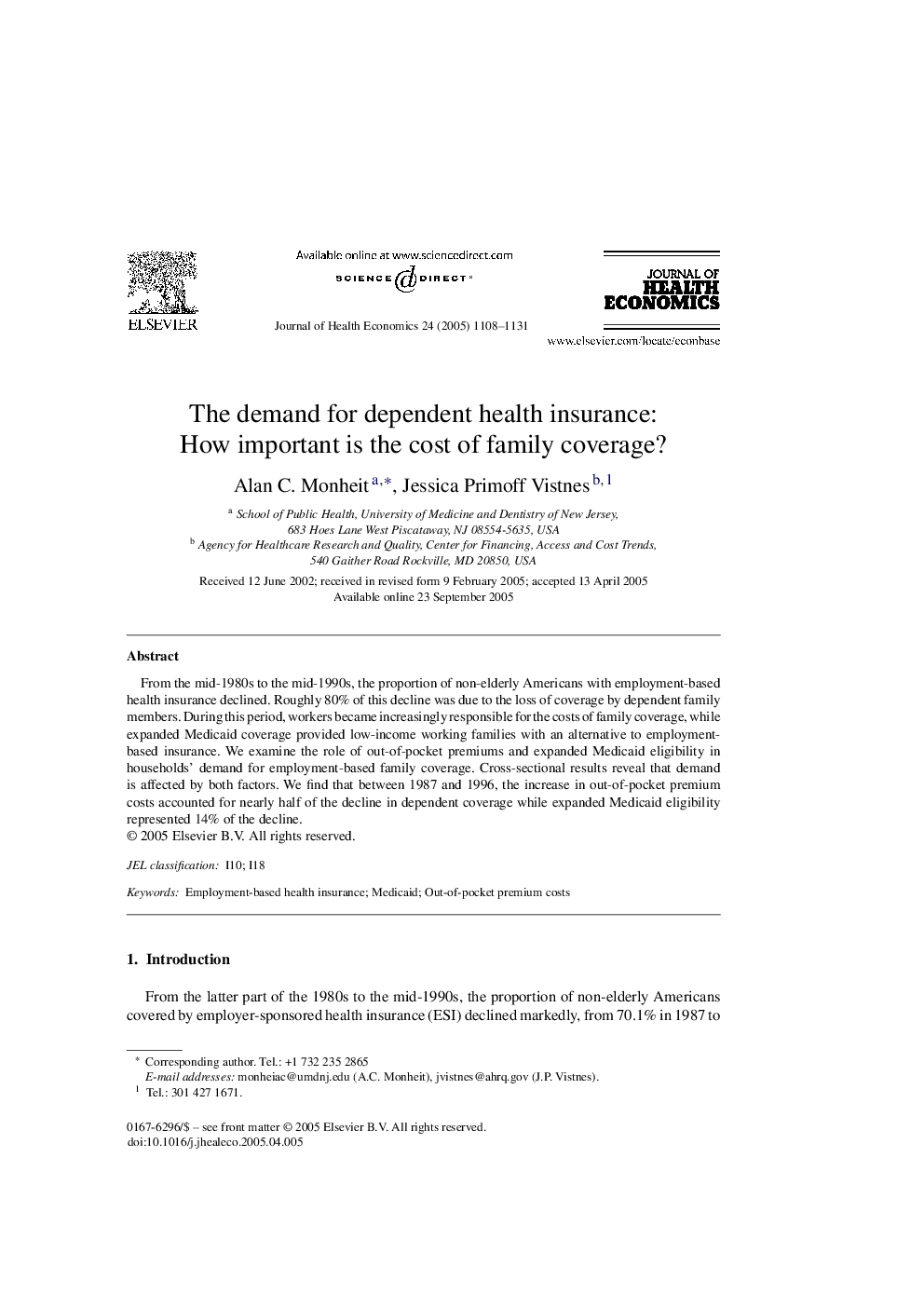| Article ID | Journal | Published Year | Pages | File Type |
|---|---|---|---|---|
| 10476757 | Journal of Health Economics | 2005 | 24 Pages |
Abstract
From the mid-1980s to the mid-1990s, the proportion of non-elderly Americans with employment-based health insurance declined. Roughly 80% of this decline was due to the loss of coverage by dependent family members. During this period, workers became increasingly responsible for the costs of family coverage, while expanded Medicaid coverage provided low-income working families with an alternative to employment-based insurance. We examine the role of out-of-pocket premiums and expanded Medicaid eligibility in households' demand for employment-based family coverage. Cross-sectional results reveal that demand is affected by both factors. We find that between 1987 and 1996, the increase in out-of-pocket premium costs accounted for nearly half of the decline in dependent coverage while expanded Medicaid eligibility represented 14% of the decline.
Related Topics
Health Sciences
Medicine and Dentistry
Public Health and Health Policy
Authors
Alan C. Monheit, Jessica Primoff Vistnes,
